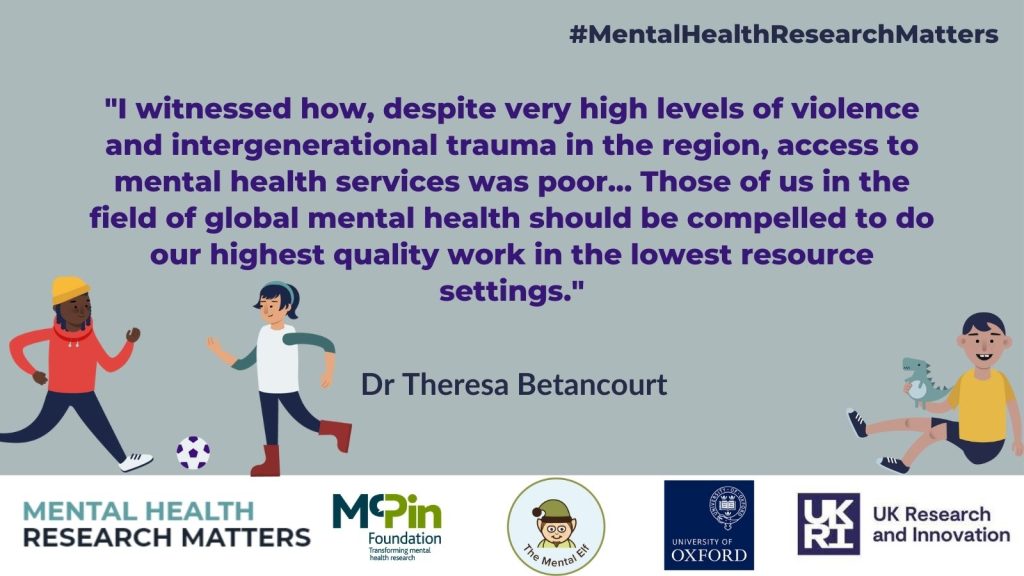Dr Theresa Betancourt, Salem Professor in Global Practice, School of Social Work at Boston College shares why she believes researchers should be doing their highest-quality work in the lowest-resource settings.

Expanding access to evidence-based mental health care and prevention services for war-affected children, youth, and families remains an incredibly important global topic. My team’s research has evolved from observational studies, to randomized controlled trials, to implementation science on how to scale while ensuring quality and sustainment of culturally and contextually-informed mental health interventions across a range of cultures.
Growing up in a very remote and low-resource setting in Alaska inspired me to enter the mental health research field. I witnessed how, despite very high levels of violence and intergenerational trauma in the region, access to mental health services was poor. I am truly convinced that those of us in the field of global mental health should be compelled to do its highest quality work in the lowest resource settings.
When it comes to humanitarian emergencies, the global mental health field must dedicate itself to strengthening mental health and social services systems – knowing that sustained investments and a long view are crucial to making a meaningful impact on the lives of children and families.
We have been able to engage in very exciting community-based participatory research with war-affected populations – training individuals with lived experience as resettled refugees to be researchers in their communities. These teams have co-developed peer-delivered, family-based prevention models to support newly resettling families in the US. In post-genocide Rwanda, our team employed implementation science methods to scale out home-visiting interventions to promote nurturing care and reduce family violence by linking evidence-based programs to social protection systems, while also embedding systems for monitoring and quality improvement.
Our home-visiting intervention in Rwanda is now on course to reach more than 10,000 families. Such things are possible when working in partnership with local actors and galvanizing the leadership potential of individuals with lived experience.
Dr Theresa Betancourt is Principal Investigator of an intergenerational study of war/prospective longitudinal study of war-affected youth in Sierra Leone.
Find out more about the #MentalHealthResearchMatters campaign running in October-December 2022.